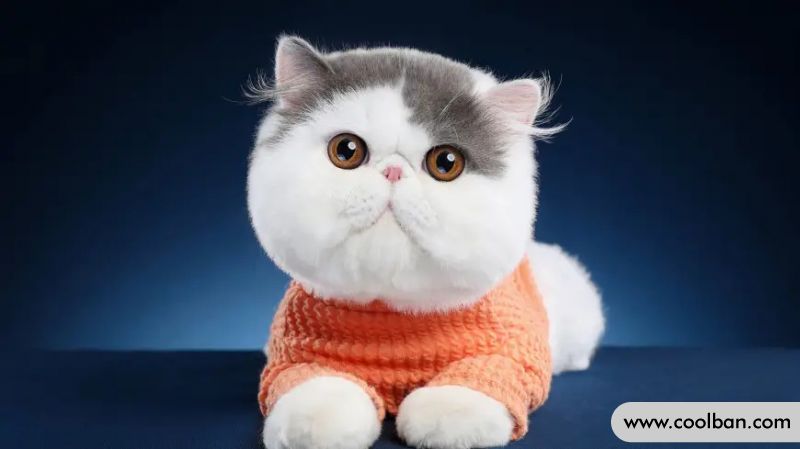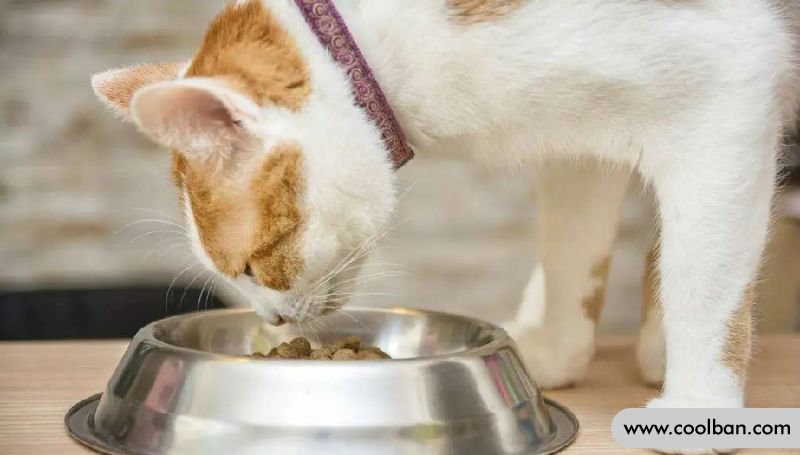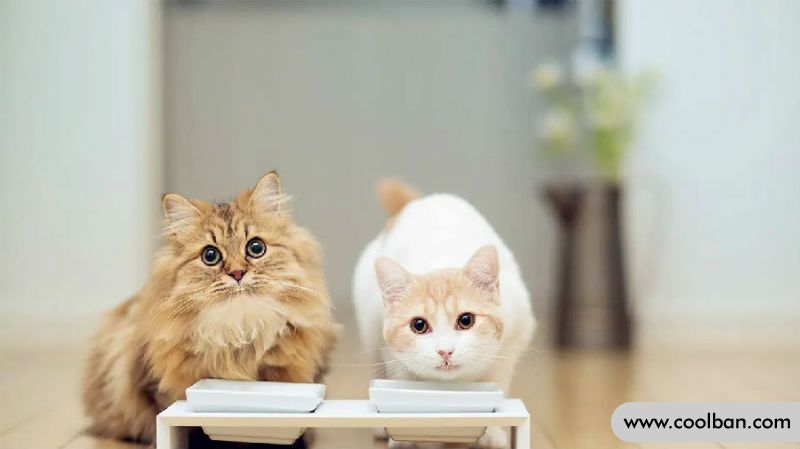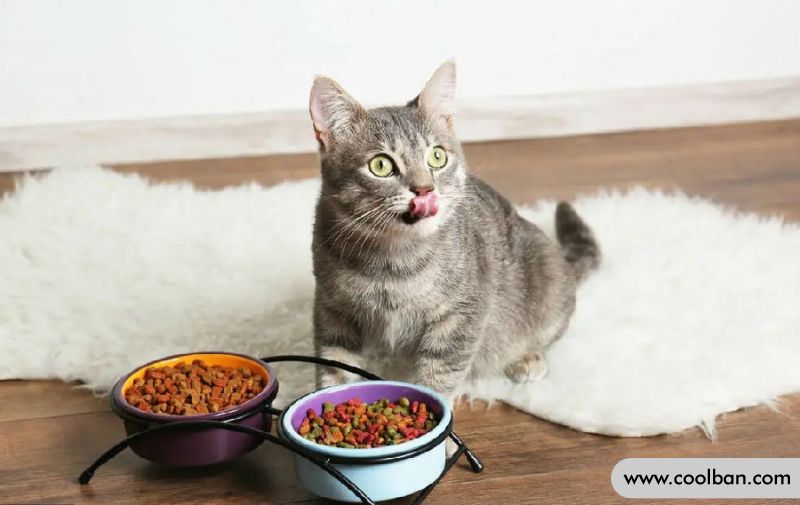Correct choice of pet cat food
2022-05-05
The ultimate point of raising a cat is food. The daily food of a pet cat can directly affect the cat's health. If it is not fed properly, it will even threaten the life safety of the pet cat. Therefore, if you want to raise a pet cat, you must choose food carefully. .
How to choose the correct food for pet cats?
1. Cat food
Now the cat food on the market can be simply divided into commercial food and natural food. Commercial grains mainly refer to grains containing 4D components (Dead, Diseased, Dying, Disabled) and their by-products (viscera, fur, etc.), most of which are also added with food attractants. Correspondingly, natural food refers to food that does not contain animal carcasses, animal by-products and other substances, and does not use food attractants, preservatives and other harmful substances.
The ubiquitous cat food ingredients are mainly 4D by-products and grains that pet cats cannot digest. Added lots of food attractants, colouring and excess salt. There are many cases of pet cats eating uremia and kidney stones, all of which can be found on the Internet, so please stay away from such toxic food products.

Let’s talk about the key natural foods first, first popularize some common sense of pet cat nutrition:
1) Grain Free > There are grains: Cats are natural carnivores, and unlike omnivorous humans, cats in nature have absolutely no need to eat grains. Cats don't have enough enzymes to break down grains, which are mainly composed of carbohydrates, and have a short digestive tract. Cat food with high grain content can easily burden the pancreas of pet cats, and the decomposed sugar can easily cause pet cats to gain weight. Therefore, grain-containing cat food must be less suitable for pet cats than grain-free cat food.
2) Animal protein/fat > vegetable protein/fat: Cats can quickly digest and decompose animal protein and fat, but for vegetable protein and fat, the digestion and absorption rate is not so high.
Therefore, for healthy pet cats (except those with special dietary needs), a good cat food must be grain-free and contain a good amount of high-quality animal protein and fat. But there are so many cat food on the market, which one is the best? No, the specific choice of natural food is based on the characteristics of each pet cat. Some pet cats experience stomach upset and diarrhea after eating high protein. Some pet cats will develop folliculitis after eating greasy cat food, and it is difficult to give a unified recommendation. But the way to choose cat food is for sure - look at the ingredients!

Quantity and storage method of cat food:
It is strongly recommended to feed your pet cat at a fixed time according to the amount corresponding to the body weight on the cat food package. Generally speaking, twice in the morning and evening is enough. The benefit of this is to develop good eating habits for your pet cat and monitor daily food intake. Many diseases in pet cats start with sudden loss of appetite, and monitoring food intake can detect physical problems in a relatively timely manner.
Many people feed them casually. When the cat food is finished, more will be added. The consequences of this are: if the pet cat has a big appetite, it will lead to obesity; if the pet cat has a small appetite, it is easy to get wet before it finishes eating, resulting in the production of deadly aflatoxins. Generally, large bags of cat food should be packed in storage buckets or airtight aluminum foil bags and stored with a moisture barrier.

2. Canned cat food (staple food)
Canned cat food is relatively less complicated, and it is enough to distinguish between canned staple food and canned snacks. what's the difference? Snack jars are nutritionally unbalanced, and many contain food attractants. Pet cats tend to become fussy after eating too much. Feeding frequency less than once a week is recommended. How to distinguish between staple food cans and snack cans? A very simple and rude method: There are many canned staple foods in Europe and America, while Japanese canned foods are basically canned snacks... If you want to be very precise, canned staple foods are mainly mud, if you can see the smell of fish and meat Very fresh, all snack jars. Of course, there are exceptions to the staple jar, where you can see chunks of meat. If you really can't tell the difference, that's fine. Generally, the staple food will be written on the front of the tank. If you can't tell the difference, you can ask the seller.
Open cans over 24 Don't feed it for hours, and if you keep it in the refrigerator, remember to bring it back to normal temperature before feeding your cat. For more than 200 grams of canned food that cannot be eaten in one meal, it is best to buy a canned lid for easy storage.
3. Cat treats
Most meat strips and cat puddings have attractants. Feeding once in a while as a reward is enough, overfeeding is not recommended. If you want to feed your cat anything other than food every day, it's best to feed a jar of staple food or homemade treats.
4. Homemade snacks
Occasionally feeding your cat some homemade, additive-free treats is definitely better than buying them. Boiled shredded chicken breast or chicken breast directly into the oven at 160 degrees for 10 minutes, boiled prawns in white water, etc., the effect is good.

Food poisonous to cats
As long as people with basic common sense and scientific feeding, will not feed the food that people eat to pet cats, but cats are sometimes super cute and can't help but want to give them something to eat. Then, the following foods are good for pet cats It is extremely poisonous, please remember, no matter how cute the pet cat is!
1. Chocolate/cocoa/tea/all caffeinated beverages: Caffeine is highly toxic to pet cats and can be fatal in severe cases.
2. Lily: can cause kidney failure
3. Alcohol: Causes huge damage to pet cats’ livers and brains
4. Grapes and raisins: May cause acute renal failure
5. Avocado: cause gastrointestinal discomfort, difficulty breathing, etc.
6. Milk: Not very toxic, but cats do not have the ability to metabolize lactose, which can easily cause diarrhea
7. Onions, garlic, leeks, green onions: Strong oxidation can cause red blood cells to rupture
8. Xylitol: Causes liver failure
In fact, it's better not to feed pet cats human food than to avoid them!
The medicines that humans eat should not be given to pet cats. If you are sick, please go to a specialized animal hospital for treatment.
How to choose the correct food for pet cats?
1. Cat food
Now the cat food on the market can be simply divided into commercial food and natural food. Commercial grains mainly refer to grains containing 4D components (Dead, Diseased, Dying, Disabled) and their by-products (viscera, fur, etc.), most of which are also added with food attractants. Correspondingly, natural food refers to food that does not contain animal carcasses, animal by-products and other substances, and does not use food attractants, preservatives and other harmful substances.
The ubiquitous cat food ingredients are mainly 4D by-products and grains that pet cats cannot digest. Added lots of food attractants, colouring and excess salt. There are many cases of pet cats eating uremia and kidney stones, all of which can be found on the Internet, so please stay away from such toxic food products.

Let’s talk about the key natural foods first, first popularize some common sense of pet cat nutrition:
1) Grain Free > There are grains: Cats are natural carnivores, and unlike omnivorous humans, cats in nature have absolutely no need to eat grains. Cats don't have enough enzymes to break down grains, which are mainly composed of carbohydrates, and have a short digestive tract. Cat food with high grain content can easily burden the pancreas of pet cats, and the decomposed sugar can easily cause pet cats to gain weight. Therefore, grain-containing cat food must be less suitable for pet cats than grain-free cat food.
2) Animal protein/fat > vegetable protein/fat: Cats can quickly digest and decompose animal protein and fat, but for vegetable protein and fat, the digestion and absorption rate is not so high.
Therefore, for healthy pet cats (except those with special dietary needs), a good cat food must be grain-free and contain a good amount of high-quality animal protein and fat. But there are so many cat food on the market, which one is the best? No, the specific choice of natural food is based on the characteristics of each pet cat. Some pet cats experience stomach upset and diarrhea after eating high protein. Some pet cats will develop folliculitis after eating greasy cat food, and it is difficult to give a unified recommendation. But the way to choose cat food is for sure - look at the ingredients!

Quantity and storage method of cat food:
It is strongly recommended to feed your pet cat at a fixed time according to the amount corresponding to the body weight on the cat food package. Generally speaking, twice in the morning and evening is enough. The benefit of this is to develop good eating habits for your pet cat and monitor daily food intake. Many diseases in pet cats start with sudden loss of appetite, and monitoring food intake can detect physical problems in a relatively timely manner.
Many people feed them casually. When the cat food is finished, more will be added. The consequences of this are: if the pet cat has a big appetite, it will lead to obesity; if the pet cat has a small appetite, it is easy to get wet before it finishes eating, resulting in the production of deadly aflatoxins. Generally, large bags of cat food should be packed in storage buckets or airtight aluminum foil bags and stored with a moisture barrier.

2. Canned cat food (staple food)
Canned cat food is relatively less complicated, and it is enough to distinguish between canned staple food and canned snacks. what's the difference? Snack jars are nutritionally unbalanced, and many contain food attractants. Pet cats tend to become fussy after eating too much. Feeding frequency less than once a week is recommended. How to distinguish between staple food cans and snack cans? A very simple and rude method: There are many canned staple foods in Europe and America, while Japanese canned foods are basically canned snacks... If you want to be very precise, canned staple foods are mainly mud, if you can see the smell of fish and meat Very fresh, all snack jars. Of course, there are exceptions to the staple jar, where you can see chunks of meat. If you really can't tell the difference, that's fine. Generally, the staple food will be written on the front of the tank. If you can't tell the difference, you can ask the seller.
Open cans over 24 Don't feed it for hours, and if you keep it in the refrigerator, remember to bring it back to normal temperature before feeding your cat. For more than 200 grams of canned food that cannot be eaten in one meal, it is best to buy a canned lid for easy storage.
3. Cat treats
Most meat strips and cat puddings have attractants. Feeding once in a while as a reward is enough, overfeeding is not recommended. If you want to feed your cat anything other than food every day, it's best to feed a jar of staple food or homemade treats.
4. Homemade snacks
Occasionally feeding your cat some homemade, additive-free treats is definitely better than buying them. Boiled shredded chicken breast or chicken breast directly into the oven at 160 degrees for 10 minutes, boiled prawns in white water, etc., the effect is good.

Food poisonous to cats
As long as people with basic common sense and scientific feeding, will not feed the food that people eat to pet cats, but cats are sometimes super cute and can't help but want to give them something to eat. Then, the following foods are good for pet cats It is extremely poisonous, please remember, no matter how cute the pet cat is!
1. Chocolate/cocoa/tea/all caffeinated beverages: Caffeine is highly toxic to pet cats and can be fatal in severe cases.
2. Lily: can cause kidney failure
3. Alcohol: Causes huge damage to pet cats’ livers and brains
4. Grapes and raisins: May cause acute renal failure
5. Avocado: cause gastrointestinal discomfort, difficulty breathing, etc.
6. Milk: Not very toxic, but cats do not have the ability to metabolize lactose, which can easily cause diarrhea
7. Onions, garlic, leeks, green onions: Strong oxidation can cause red blood cells to rupture
8. Xylitol: Causes liver failure
In fact, it's better not to feed pet cats human food than to avoid them!
The medicines that humans eat should not be given to pet cats. If you are sick, please go to a specialized animal hospital for treatment.
